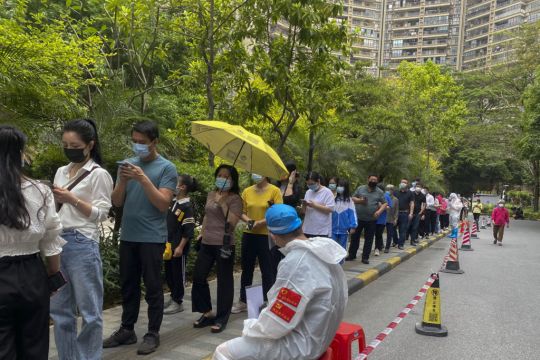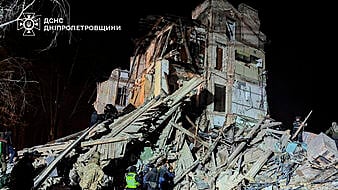The manufacturing hub of Guangzhou shut schools and closed itself to most arrivals on Monday as China battles a major Covid-19 surge in its big eastern cities.
Shanghai has taken the brunt of the rise, with another 26,087 cases announced on Monday, only 914 of which showed symptoms. The city of 26 million is under a tight lockdown, with many residents confined to their homes for up to three weeks.
The financial hub has seen international events cancelled because of the crackdown, and football club Shanghai Port has been forced to withdraw from the Asian Champions League because travel restrictions prevented it from attending games in Thailand.
No such lockdown has yet been announced for Guangzhou, a port city with a population of 18 million north west of Hong Kong that is home to many top companies and China’s busiest airport. Just 27 cases were reported in the city on Monday.

However, primary and middle schools have been switched to online learning after an initial 23 local infections were detected last week. An exhibition centre was being converted into a makeshift hospital after authorities said earlier they would begin citywide mass testing.
Only citizens with a “definite need” to leave Guangzhou can do so, and only if they test negative for the virus within 48 hours of departure, city spokesperson Chen Bin said in a social media announcement.
China has stuck to its “zero-Covid” strategy of handling outbreaks with strict isolation and mass testing, despite complaints in Shanghai over shortages of food and medical services.
China’s government and the state-controlled media are growing increasingly defensive about complaints over the Covid-19 prevention measures, censoring content online and rebuking foreign critics.
Foreign Ministry spokesman Zhao Lijian said on Sunday that China had “lodged solemn representations with the US” after the State Department advised Americans to reconsider travelling to China due to “arbitrary enforcement” of local laws and Covid-19 restrictions, particularly in Hong Kong, Jilin province and Shanghai. US officials cited a risk of “parents and children being separated”.
China was “strongly dissatisfied with and firmly opposed to the US side’s groundless accusation against China’s epidemic response,” Mr Zhao said.
He issued a further defence of China’s virus controls on Monday, saying they have “proven to be effective and in line with its national conditions and needs, and have made an important contribution to the global fight against the epidemic”.
Shanghai has brought in thousands of additional health workers from other cities, provinces and the military. Despite the large number of cases, no new deaths have been reported in the Shanghai wave, possibly because the omicron variant is less deadly than older variants.
City authorities also say they have secured daily supplies for residents, following complaints about deliveries of food and other necessities.
The capital, Beijing, has seen relatively few restrictions, although the Erjiefang neighborhood including the famed 798 art district has been cordoned off and classified as high risk after eight infections were reported there over the past two weeks.
China is still mostly closed to international travel.







